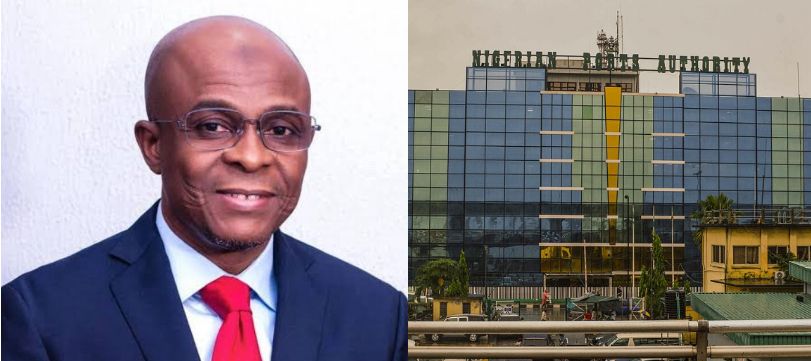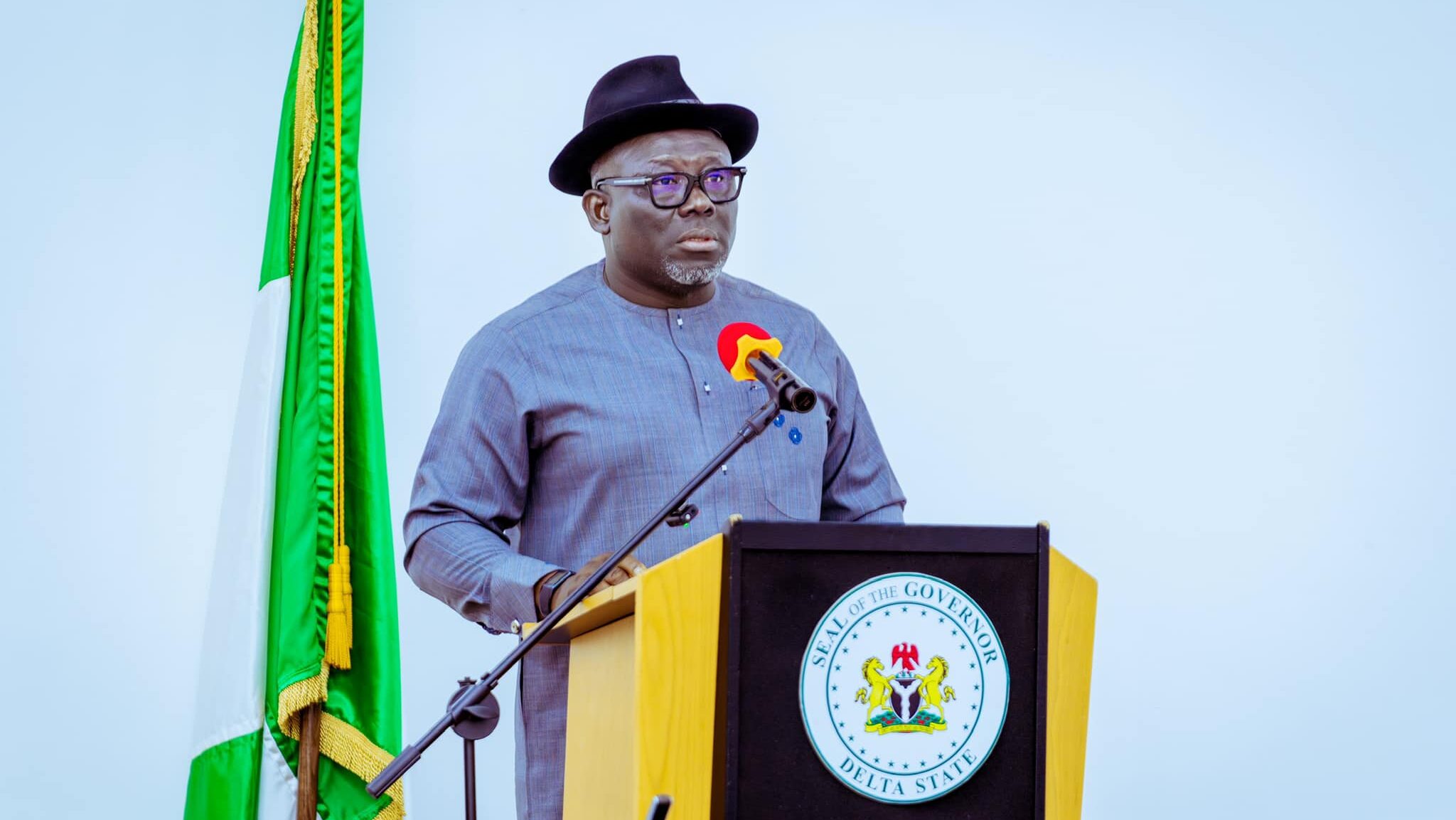RIGHT OF REPLY
By Ehimen Oriaifo
In an article by Onikepo Braithwaite published in THISDAY newspaper on 19th August 2025 entitled, ‘KEPCO, Ogunba and Jankara Tactics’, the learned author pretended to have set out to wage a war against what she called ‘jankara tactics,’ but she ended up engaging in high level ‘jankara’ journalism.
In summary, Onikepo Braithwaite argued that Kunle Ogunba SAN “misrepresented” the judgement of a trial court in Suit No FHC/L/CS/1242/2025, Kepco vs Ecobank & 9 Ors, delivered by Justice Akintayo Aluko of the Federal High Court, Lagos Judicial Division, on 5/8/2025.
Making reference to some concerns expressed by one Mr Ola-Daniels, who wondered in a broadcast interview why Kunle Ogunba SAN would put up an advertisement as a Receiver Manager after a trial court’s “judgement”, Onikepo Braithwaite wrote: “This is a serious allegation against a Senior Advocate, that is, misrepresentation of facts in order to deceive the general public, and to possibly secure benefits for his clients and himself.”
She wrote further, “I was disappointed to discover that Ogunba, SAN, appears to have engaged in what we lawyers call ‘jankara tactics’ (in his advertisements) which simply means unethical or sharp practices.”
At this point, it is important to note that the substantive matter in issue here concerns Kepco Energy Resources Nigeria Limited (Kepco), and 10 banks who advanced a syndicated loan to Kepco, leading to appointment of Ogunba SAN as Receiver Manager for the debtor company, Kepco. It is in this substantial matter that the appointment of Ogunba SAN as Receiver Manager is in issue.
So, as Onikepo Braithwaite even admitted in her article, the substantial matter is not in issue now as it is still pending in court. What is in issue today seems to be whether the interlocutory ruling stops Ogunba SAN from being the Receiver Manager or whether it should stop him from performing his function as the Receiver Manager of Kepco?
So, anyone that understands this basic difference will appreciate the fact that attempts to lump up the issues in the substantial case with the ruling on the interlocutory matter in order to confuse undiscerning public and give Ogunba SAN a bad name is nothing short of jankara journalism.
Now, without allowing legal technicalities to further confuse readers, Ogunba SAN had stated that the court affirmed his appointment as Receiver Manager, but Braithwaite claimed this is deliberate misinterpretation of the judgement.
Onikepo Braithwaite presented a one-sided narrative in her article. This constitutes a significant breach of fundamental journalistic ethics. Global journalistic standards, such as those upheld by organizations like the Society of Professional Journalists, emphasize the crucial principle of fairness and accuracy. A core tenet of this principle is giving subjects of negative or critical stories a chance to respond.
Onikepo Braithwaite had once written extensively on the importance of reliable data and building public trust. In her article titled “When Trust Is Everything,” she argues that a lack of trust in data undermines public discourse and that credible information is the basis for good policymaking and media dissemination. It is therefore ironic and disappointing that an advocate for such principles would publish a one-sided story without seeking to verify the facts from all parties involved. By not contacting Ogunba SAN for his perspective, she undermined the very principles of accuracy and trust that she has promoted as essential for both the media and public discourse.
Furthermore, Onikepo Braithwaite, who accused Ogunba SAN of ‘jankara tactics’, in the article in question did admit thus: “in actual fact, the court was constrained by established judicial precedent not to be able to set aside his appointment by an interlocutory application in such circumstances, and did the next best thing that the law permits by restraining him from exercising the functions of a Receiver/Manager, which was admitted by Ogunba, SAN in Ground 10 of his Notice of Appeal.”
Two key things can be taken by all concerned from this statement from Braithwaite:
1) The court acknowledged Ogunba SAN’s appointment as Receiver Manager of Kepco.
2) The court admitted it was constrained by established judicial precedent not to be able to set aside his appointment by an interlocutory application in such circumstances.
Also, as Braithwaite admitted in the same article, “on page 36 of the Composite Ruling, the court held that “Since there is evidence before the court that the Receiver/Manager has been appointed, that act can no longer be restrained by the court”.
He added: “In Agwu & Ors v Julius Berger (Nig) Plc (2019) LPELR-47625(SC) per John Inyang Okoro, JSC, the Supreme Court held inter alia that “….in determining an interlocutory application pending the trial of the substantive case, care should be taken not to make pronouncements which may prejudice the trial of claims filed and still pending before the court. To do otherwise, is to prejudge the matter in respect of which evidence is yet to be led”.
So, I contend herewith that Onikepo Braithwaite and any informed reader should note therefrom that this is the core of the issue under debate here. The question should be, who is being economical with the truth here: Ogunba SAN or Braithwaite and others?
After a careful consideration of the the issues as provided in the judgement, the appeal processes, the articles amongst others, I am of the opinion that the matters to be determined include:
- Did the court deny the appointment of Ogunba SAN as a Receiver Manager by the banks and for Kepco? The answer is no! The court in the refered judgment rather acknowledged him as the Receiver Manager of the said company.
- If the court did not deny the fact of his being the subsisting Receiver Manager, why is Onikepo Braithwaite unfairly accusing the learned Silk of ‘deliberately misinterpreting the ruling of the court?
- Did Ogunba SAN outreach his powers as a Receiver Manager when he caused advertisement to be published in Thisday newspaper and others for proper recruitment that will lead to effective management of the company?
Again, the answer is no until a competent court says so. Everybody knows that if a competent court formally acknowledges in any ruling that someone is a Receiver Manager of a particular company, both justice and equity expect that person to remain so and to act as the Receiver Manager of the same company pending and until a court of competent jurisdiction gives a contrary ruling.
In the instant case, a contrary ruling has not been given. But according to Onikepo Braithwaite, the trial court’s acknowledgement of Ogunba SAN’s due appointment is contained in an interlocutory ruling of the court and not in the judgement of the substantive matter and for that reason, Ogunba SAN should not have acted based on the interlocutory ruling. He should instead wait for the final judgement after the full trial before doing his work.
By this warped argument, the writer insinuated that an interlocutory ruling of a competent court is not a proper ruling to be respected and obeyed.
It is hard to accept that this argument over whether or not Ogunba SAN should act as Receiver Manager is from a learned mind, except if it was just made to ridicule Nigerian law and to misinform unlearned minds.
I say so because it is settled law that a competent court’s ruling in any matter, be it interlocutory or substantial, is law and must be obeyed. A case like Angelcom Resources Ltd. v. El Kabir Global Business Nigeria Ltd. (2021) for example shows how binding an interlocutory ruling is on parties in a case and on the court itself. In practice, this means that “a party affected by an interlocutory ruling cannot simply ignore it because they disagree with it. If a party believes a ruling is wrong, his avenue for relief is to appeal it to a higher court.”
This is even more because the court itself is bound by its own rulings unless they are set aside by a higher court.
The general rule here is that interlocutory rulings are “binding on the parties and the court that issued them unless set aside on appeal.”
This being the case, it smacks of mischief to attempt a deliberate mix-up that suggests that obedience of an interlocutory ruling should depend on the final judgement of a substantial matter that is still ongoing.
Applied to the instant case, it means that it would be unlawful to suggest that Ogunba SAN should ignore acknowledgement of his appointment as Receiver Manager of Kepco in the interlocutory ruling and that he should wait until the determination of the substantial matter before doing his work. This is where Onikepo Braithwaite seems to have missed it. She possibly does not know how delicate and important the duty of Receiver Manager is for the protection of investors and the entire corporate world.
What should interest wise interrogation is what constitutes the legitimate duties of a Receiver Manager and if the instant Receiver Manager is acting within the bounds of law?
Under the Companies and Allied Matters Act (CAMA) 2020, a Receiver Manager has the power “to take control of the company’s property, operate its business, sell assets, realize the security, and carry out all necessary actions to discharge their duties” for the benefit of the stakeholders.
So, it can be seen that one of the least powers of a Receiver Manager is to exercise the powers needed to turn around a company in the situation Kepco has found itself.
The least the learned Silk should do in his capacity as the Receiver Manager is to begin by shopping for the right people who will assist him to handle the intricate affairs of the company at a time like this. This seems to be the exact thing Ogunba SAN did through the prompt publication of the said advertisement.
My advise therefore to Onikepo Braithwaite is that even the court shows full understanding of the importance and the need to protect a debtor company through appointment of competent Receiver Manager in the interest of investors and therefore said it cannot order in the interlocutory ruling that the learned Silk was not the Receiver Manager of the said company at the material time.
It is hard to understand why a learned author and public commentator will condemn a highly rated professional, in the person of Kunle Ogunba SAN, from diligently doing a job he was engaged to do?
Although Nigerian case law on removing a Receiver Manager may not be found in a single landmark case, it is a fact that it is primarily governed by the Companies and Allied Matters Act (CAMA) 2020.
The Act grants courts the power to discharge a receiver under specific circumstances. Such circumstances include: “that the purpose for their appointment has been fulfilled, that they have breached their duties, that the company filed for administration,” etc.
A receiver can also be removed because of misconduct, like if he is found to have taken actions contrary to the best interests of the company. So, as we can see, name calling in the media space is certainly not one of the reasons or the procedure for the removal of a Receiver Manager, neither is it a means of stopping him from performing his legitimate functions.
In this instant case, it is better to await the final judgement of the court in the substantial case.
•Oriaifo writes from Lagos
The post KEPCO Vs. Ecobank & Ors: Onikepo Braithwaite Missed the Point appeared first on THISDAYLIVE.




